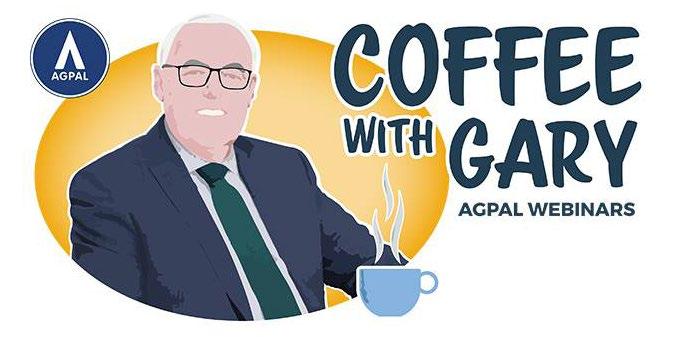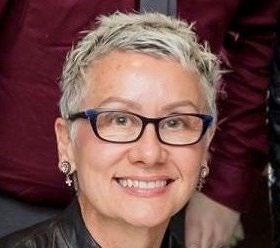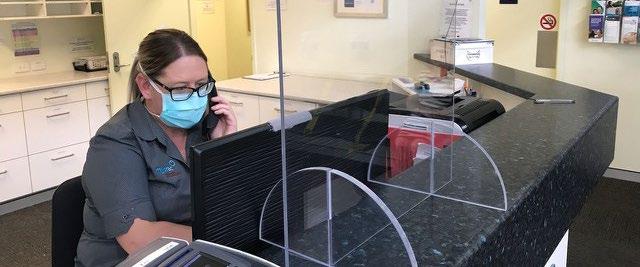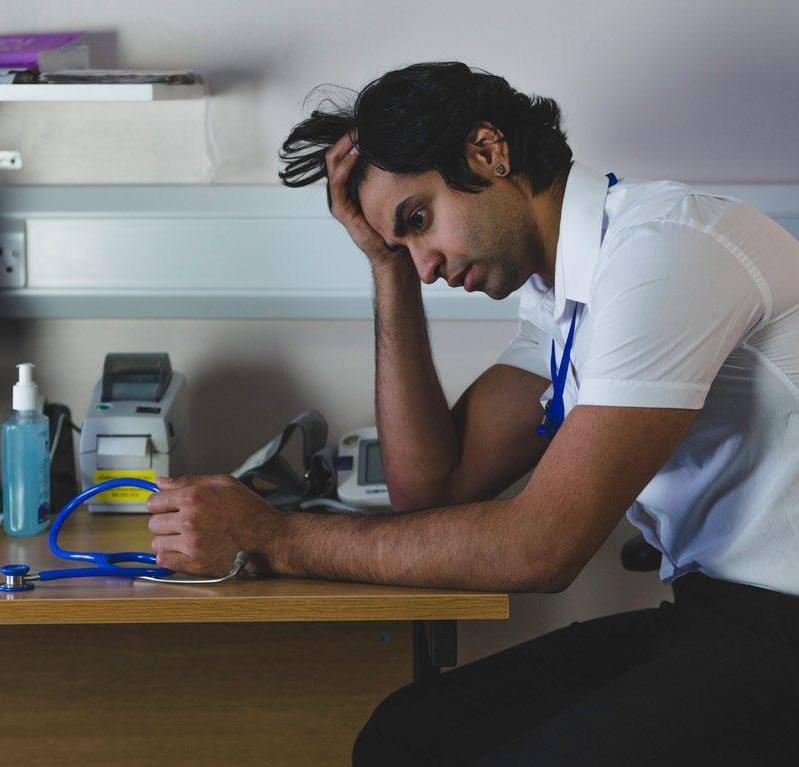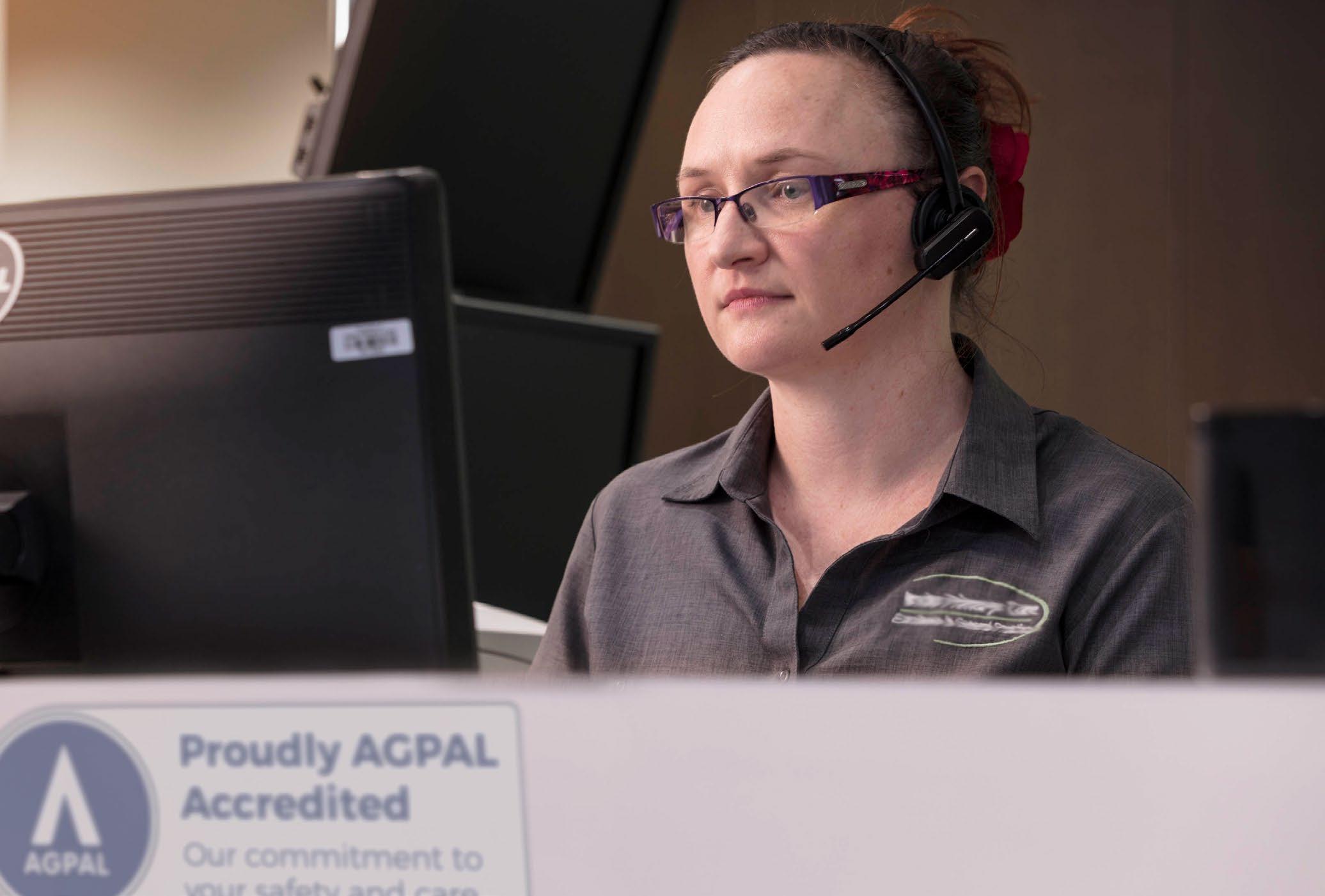
8 minute read
Thank you from the AGPAL Board Chair
Thank you
Living through a pandemic and experiencing firsthand its myriad impacts has brought into sharp focus the role public health and healthcare workers play in our national security, and social and economic structures.
We acknowledge that despite ongoing challenges to effectively and equitably reduce infections and ensure our most vulnerable are adequately protected, compared to other countries, Australia’s response to controlling COVID-19 has been among the most successful in the world. Our media outlets and government agencies continue to do an excellent job in explaining the importance of social distancing and other restrictions to help stop the spread of the virus. We have seen, however, the rise of an unintended consequence – patients being unwilling to visit a GP either thinking they are doing the right thing per social distancing or being fearful of exposure to the virus.
General practice staff have become experts at mitigating pandemic-associated risks to provide safe, high-quality care during this time. This includes effectively triaging patients who may present with COVID-19 while protecting other patients and colleagues from transmission. We can thank general practice staff for striving to ensure the on-going treatment of patients’ dayto-day health issues – whether chronic or acute – and understanding and navigating ever-changing information, advice, evidence and government incentive programs. The pivot to telehealth and other technologybased solutions combined with a broad and willing uptake by many patients has been nothing short of revolutionary and may well be viewed in the long term as a ‘silver lining’ of this pandemic. General practices have also been on the frontline of ensuring vital vaccination and immunisation coverage is effectively maintained to ensure outbreaks of preventable disease do not take hold in any way, shape or form anywhere in Australia. While infection control and prevention is always top of mind in clinical settings, once the World Health Organization announced COVID-19 a global pandemic in early March, the multi-sector demand for hand sanitiser and personal protective equipment (PPE) exploded – vastly outstripping supply. A particularly challenging problem for healthcare and those working on the frontline with potentially infected patients. Across Australia, general practice staff including clinicians, practice managers, nurses, receptionists and administrators banded together to source and resolve shortages, as well as clarify and share indications for correct use.
We also know that during this time some general practices have faced worrying financial challenges due to a reduction in face-to-face consultation revenue combined with the additional costs of implementing new systems and process and PPE. Some practices have had to stand down nursing and support staff or take other cost-cutting measures without impacting high-quality, safe care. My hope is that these issues are short-lived; resolved through an organic shift back to a ‘new normal’ and an appropriate government response. On a personal level – as humans living and working through this crisis – primary care doctors, nurses and their support teams are no different from other citizens in that exposure to global media, COVID-19 hot spots, lockdowns, border closures and other restrictions affects them and their loved ones in many and sometimes difficult ways. Unfortunately, as a nation we continue to be at risk of COVID-19 infection. General practices will continue to be our first point of call to discuss concerns and reach a diagnosis, and receive treatment.
It is with all of the above and more in mind that I – on behalf of the AGPAL Group of Companies – join with people from all states and territories to express deep gratitude to each and every general practice staff member across Australia. Whether you are a GP, nurse or other allied health clinician, support and/or administrative staff, or a general practice patient – please stay safe by continuing to adhere to government advice and look after yourselves and your families in the most holistic way possible.
Dr Richard Choong AGPAL Board Chair
Welcome to your Spring 2020 edition of Quality News.
As we move through 2020, each month seems to roll into the next whereby time passes at a glacial pace while also whirling by in an indistinguishable blur. General practices have played a central role on the frontline of care during COVID-19, managing the everyday needs of patients while adapting to triaging, telehealth, new levels of infection control and prevention, and implementing risk management like never before. I echo the sentiments Richard outlined on the previous page and extend my appreciation and admiration to all general practice staff for your hard work and dedication during this challenging year. Working in such demanding and taxing circumstances throughout what is now proving to be a new way of life is testament to your resilience and the dedication you have for your communities. Now more than ever, it is important to ensure you take care of yourselves – both physically and mentally. While many patients are coming to your practice for care and advice, data indicates healthcare workers are less inclined to seek the same support services. The article on page 11 provides ideas and resources that may assist your staff to maintain good mental health. Some community groups are at elevated risk of adverse health effects due to the ongoing pandemic, particularly the lesbian, gay, bisexual, transgender, intersex, queer/questioning, asexual, and many others such as non-binary and pansexual (LGBTIQA+). These communities are known to have health disparities that may negatively influence disease outcomes. Together with Rainbow Health Victoria, we have compiled some tips, to assist your practice in providing safe and inclusive services throughout COVID-19. Due to the COVID-19 pandemic, the Australian Commission on Safety and Quality in Health Care (the Commission) suspended accreditation for general practices and healthcare organisations to reduce unnecessary risk to staff, patients and the community. Having undertaken a review and considerable planning, the Commission has recently advised accrediting agencies that general practice accreditation will recommence as of 26 October. On-site assessments will be based upon a risk-based approach and will only take place in settings where there is a low risk of transmission of COVID-19.
All accredited practices that had a valid accreditation expiry date as at or after Wednesday 25 March 2020 are automatically eligible for a 12- month extension to their certification expiry date. While accreditation assessments have been on hold, we know for most general practices continuous quality improvement has not been. In this edition of Quality News, we continue to provide information to support you and your team on meeting the RACGP Standards for general practices 5th edition (the RACGP Standards) – particularly those that frequently appear within the top-10 common non-compliances. Follow-ups and recalls, while always important, are very much currently so for practices providing COVID-19 testing. These are outlined extensively in the RACGP Standards under Criterion GP2.2 – Follow-up systems. On page 13, we have put together information on the importance of followups and recalls, and ways to ensure your practice sufficiently meets this criterion. Due to COVID-19, there are new levels of clinical risk that can directly impact the health of your practice team and the day-to-day operations of your practice. We examine this topic on page 17 – the RACGP Standards Criterion QI3.1. Recent risk mitigation has been displayed by practices introducing 'sneeze screens' to protect practice staff. In support of the safety of your staff, on page 5 the infection control measures required to clean these ‘COVID-19 installed’ screens are outlined.
We are looking forward to once again working with you throughout your accreditation process and I would like to remind you that your AGPAL Team is here to support you in any way we can. If you have any questions or concerns, we would be pleased to help. We are just a phone call or email away on 1300 362 111 or info@agpal.com.au.


Dr Stephen Clark Chief Executive, AGPAL
On-site assessments for accreditation to recommence
The Commission has confirmed that on-site assessments against the RACGP Standards will recommence from 26 October for eligible practices that are at low risk of COVID-19 Sydney GP and RACGP President,
transmission. AGPAL is pleased to advise that all accredited practices that had a valid accreditation expiry date as at/or after Wednesday 25 March 2020 are automatically eligible for a 12-month extension to their certification expiry date. As part of the Practice Incentives Program (PIP) and Workforce Incentive Programs (WIP), payments will automatically continue for accredited practice. Accredited practices are not required to contact Services Australia.
Vale Dr Harry Nespolon
https://bit.ly/QN20_NGPA Dr Harry Nespolon has sadly passed away from pancreatic cancer. Dr Nespolon was at the forefront of advocating for Australian GPs to ensure they had the resources and support necessary to care for their community. We extend our deepest condolences to his partner, daughters, friends, colleagues and patients.
AMDS Program Guidelines changes
The Australian Government Department of Health’s Approved Medical Deputising Service (AMDS) Program Guidelines have changed effective from 1 August 2020.
The most notable updates that impact how AGPAL approaches medical deputising service (MDS) accreditation relates to: Co-location – specificity has been included that an MDS must be a stand-alone entity that, in addition to not sharing resources, has a separate entrance and address to any other general or medical service, including allied health. Transferring calls to another AMDS – the guidelines describe that the MDS is able to transfer calls to another AMDS if required, but notes the requirement to have a formal agreement if this is to occur. In querying to the Department under what circumstances would it be reasonable to transfer a call to another provider, the Department responded by clarifying that while the Guidelines allow calls to be transferred to another service provider, a service provider cannot transfer the care of a patient. The Department further described that service providers are required to operate for the entirety of the Commonwealth-defined after-hours period. They cannot defer this responsibility to another service provider as a means of reducing their operating hours, and that where a consultation booking is required, a doctor from the originating deputising service needs to attend to the patient.


